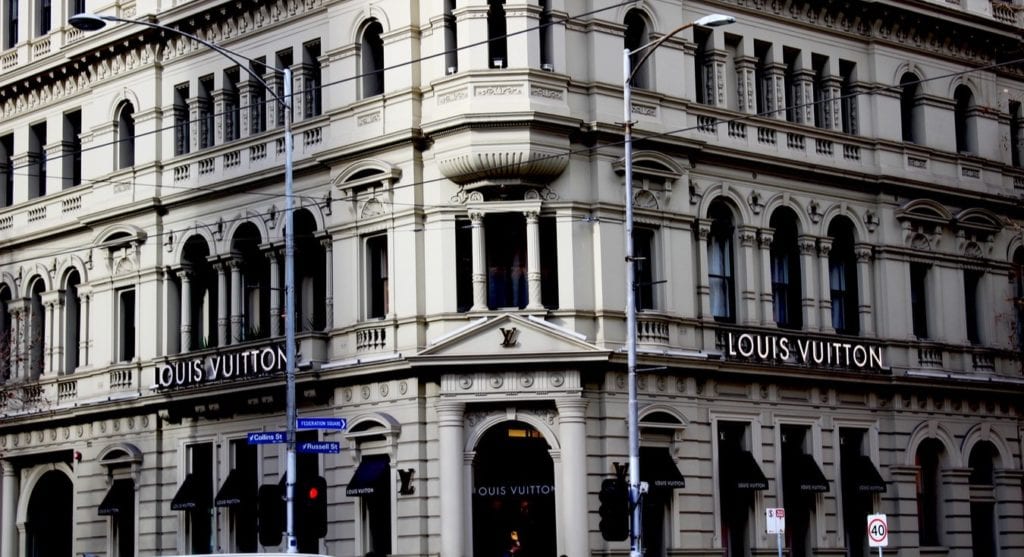LVMH wants to deal with the sexual harassment and retaliation lawsuit it is facing behind closed doors. In a new filing in response to the case that LVMH’s Litigation Counsel and Vice President of Legal Affairs Andowah Newton filed last month, the world’s largest luxury goods group has asked a New York state court to stay the proceedings and compel arbitration given that Newton’s December 2014 employment contract states that “any disputes of any nature between you and [LVMH] will be submitted to binding arbitration.”
The Paris-based parent to Louis Vuitton, Dior, Celine, Givenchy, and Loewe, among many others, was named in a headline-making lawsuit in late April in which Newton alleges that she has been exposed to “sexual harassment at the hands of a senior level management employee … that continued for years” and LVMH did very little to remedy it. According to the suit, LVMH tried to “intimidate Ms. Newton into not pursuing her claims and [attempted to] convince [her] that the harassment was just a byproduct of being an attractive woman who works at a company with a French culture, and thus, should simply be tolerated.”
While Newton filed suit in a New York state court, LVMH – which by way of Dior SA holds the number 208 position on Fortune’s Global 500 list – wants the case referred to arbitration, a form of alternative dispute resolution, pointing to language in Newton’s employment contract, which requires that LVMH employees deal with legal issues between it “or any of its subsidiaries, affiliates, or related entities, or any of their officers, directors, employees or agents” out of court and in a confidential manner.
The arbitration agreement requires that “all information regarding the dispute, claim or arbitration proceedings, including any settlement or arbitration award, will not be disclosed by Employee [or LVMH] … to any third party without the written consent of Company and Employee.”
While “companies can’t bar employees from reporting complaints to the Equal Employment Opportunity Commission, which investigates and makes a determination about whether there’s enough to proceed with a court case,” according to Bloomberg, they generally can “require employees to sign away their right to file a civil suit” in favor of arbitration, including in cases of sexual harassment. And that is precisely what many companies do.
In New York state, however, the law is expected to change in the very near future. In an attempt to modernize the law’s treatment of sexual harassment, state Senators have proposed legislation to ban forced arbitration in cases centering on sexual harassment. That bill – Senate Bill S6577 – has not yet been signed into law, meaning that LVMH’s arbitration provision is, in fact, good law.
The proposed new ban on mandatory arbitration of sexual harassment claims in New York, which will make arbitration agreements set forth in contracts entered into in New York state on or after January 1, 2020 “null and void,” assuming the law is not preempted by federal law, which maintains no such rule, was passed by the New York State legislature in June, and still needs the signature of Governor Andrew Cuomo.
The large-scale reliance on arbitration in harassment cases has been a topic of much discussion, particularly in light of the #MeToo movement.
In practice, arbitration differs from formal litigation in that its proceedings are private, meaning that third parties cannot attend conferences or hearings, and in many cases, the proceedings – and the outcomes – are completely confidential, thereby obscuring information from the public and even from the claimants’ co-workers.
In keeping individuals out of court, arbitration procedures “overwhelmingly favor employers” in a number of ways, according to the Economic Policy Institute. For instance, arbitration can be used as “a means for abusers to conceal misconduct,” U.S. Senator Richard Blumenthal has asserted, referring to the common use of confidentiality agreements as a prerequisite to the settlement of the claims and any financial arrangement for the benefit of the aggrieved party.
More than that, research by Stone and Cornell law professor Alexander Colvin shows that “payouts in arbitration are much smaller than the damages plaintiffs might receive in court.”
With these things in mind, politicians, non-profit organizations, and the public, alike, have lobbied companies to do away with forced arbitration in certain scenarios, namely, in connection with claims of sexual harassment, and to some extent, it has proven effective.
States, such as Washington, DC, have enacted similar legislation to the bill that is currently pending in New York. Meanwhile, late last year, House Democrats introduced the Restoring Justice for Workers Act, in an attempt to can companies from requiring workers to be bound by arbitration clauses as a condition of their employment.
Still yet, major corporations, including Google, Facebook, Uber, and Lyft, among others, have opted to put a stop to their practice of forcing employees’ sexual harassment claims into private arbitration.
*The case is Andowah Newton v. LVMH, 154178/2019 (N.Y. Sup.)














